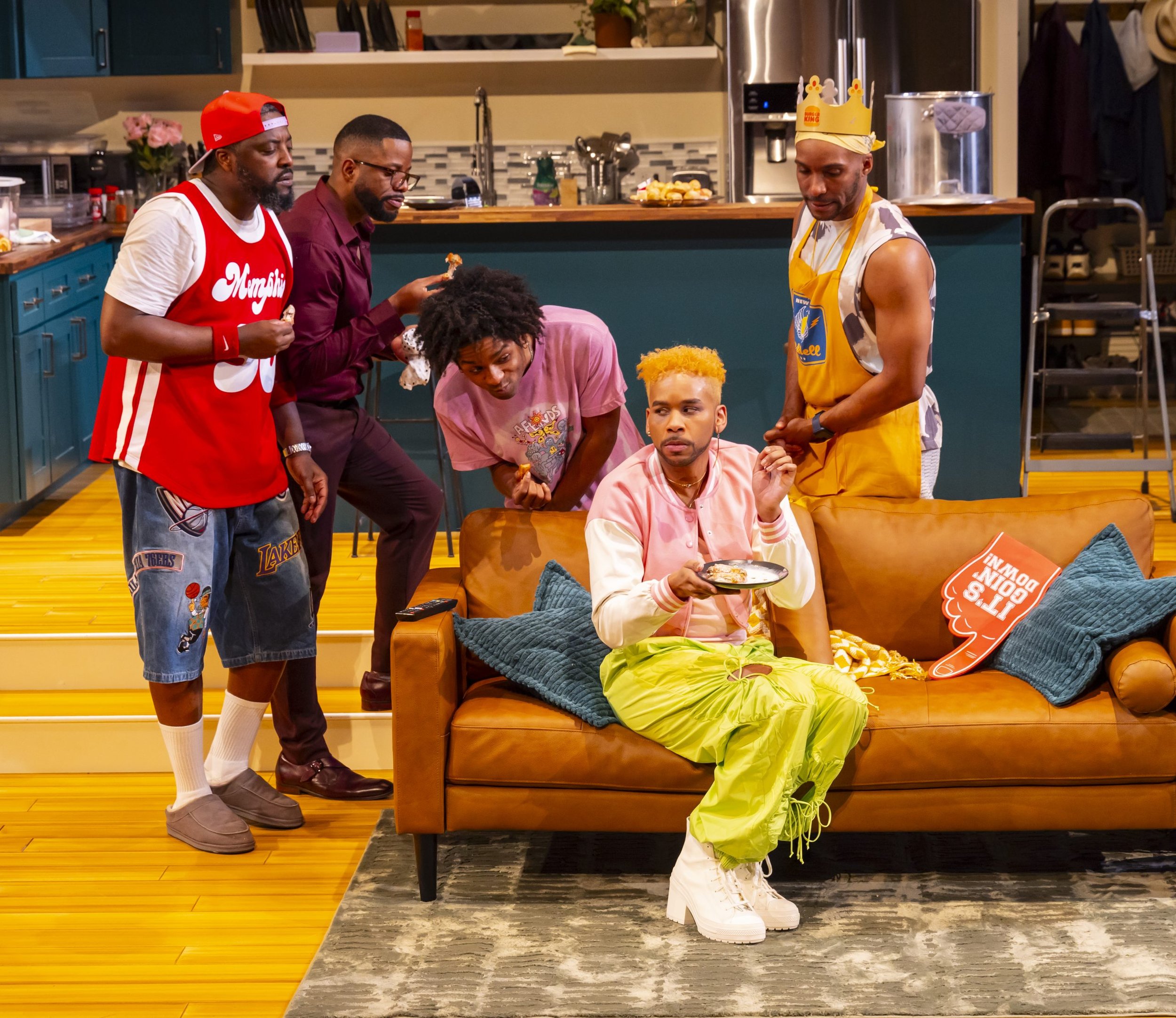Don’t Sit So Close to the TV: The Hot Wing King Review
Postell Pringle, Calvin M. Thompson, Marcus Gladney Jr., Israel Erron Ford, and Bjorn DuPaty in The Hot Wing King (2024). Photo by T. Charles Erickson.

Postell Pringle, Calvin M. Thompson, Marcus Gladney Jr., Israel Erron Ford, and Bjorn DuPaty in The Hot Wing King (2024). Photo by T. Charles Erickson.